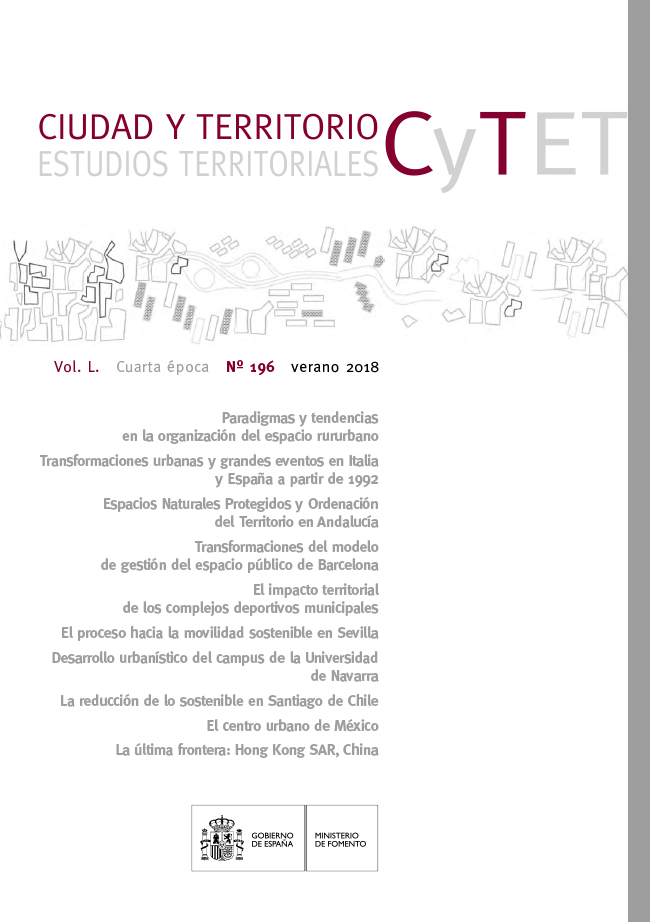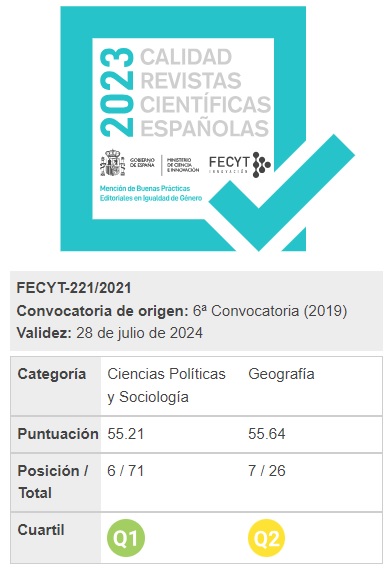Trends and paradigms on the organization of rururban spaces: a theoretical approach
Keywords:
Counterurbanization, internal migration, metropolization, rururbanizationAbstract
This paper presents a theoretical review over the occupation of rur-urban spaces as a consequence of the process of counterurbanization, which has been documented since the mid-twentieth century. In this process, the city as a space of agglomeration has been reconfigured through several internal tensions which influence the new habitat lifestyles in the rural spaces, not standing far aside from the urban lifestyle. The dynamics of this kind of rural occupation produced changes in the physical and social morphology of territories, and so its conceptualization has been hindered, especially as a result of the ambiguity that rural spaces are no longer strictly for agricultural uses but also for other purposes with higher land rents, and because of the transformation in the social practices and their environmental effects. Therefore, the challenge is to identify new interpretative frameworks that could facilitate regional and territorial planning in these places which are subject of constant changes.
Downloads
Downloads
Published
How to Cite
Issue
Section
License
Copyright (c) 2018 Edisson Castro Escobar, Marison González González, Claudia Múnevar Quintero

This work is licensed under a Creative Commons Attribution-NonCommercial-NoDerivatives 4.0 International License.
Considering the provisions of the current legislation on Intellectual Property, and in accordance with them, all authors publishing in CyTET give -in a non-exclusive way and without time limit- to the Ministry of Transport, Mobility and Urban Agenda the rights to disseminate, reproduce, communicate and distribute in any current or future format, on paper or electronic, the original or derived version of their work under a Creative Commons Attribution-NonCommercial-NoDerivative 4.0 license International (CC BY-NC-ND 4.0), as well as to include or assign to third parties the inclusion of its content in national and international indexes, repositories and databases, with reference and recognition in any case of its authorship.
In addition, when sending the work, the author(s) declares that it is an original work in which the sources that have been used are recognized, committing to respect the scientific evidence, to no longer modify the original data and to verify or refute its hypothesis. Author(s) also declare that the essential content of the work has not been previously published nor will it be published in any other publication while it is under evaluation by CyTET; and that it has not been simultaneously sent to another journal.
Authors must sign a Transfer of Rights Form, which will be sent to them from the CyTET Secretariat once the article is accepted for publication.
With the aim of promoting the dissemination of knowledge, CyTET joins the Open Journal Access (OA) movement and delivers all of its content to various national and international indexes, repositories and databases under this protocol; therefore, the submission of a work to be published in the journal presupposes the explicit acceptance by the author of this distribution method.
Authors are encouraged to reproduce and host their work published in CyTET in institutional repositories, web pages, etc. with the intention of contributing to the improvement of the transfer of knowledge and the citation of said works.








 Enlace a CyTET en Linkedin
Enlace a CyTET en Linkedin